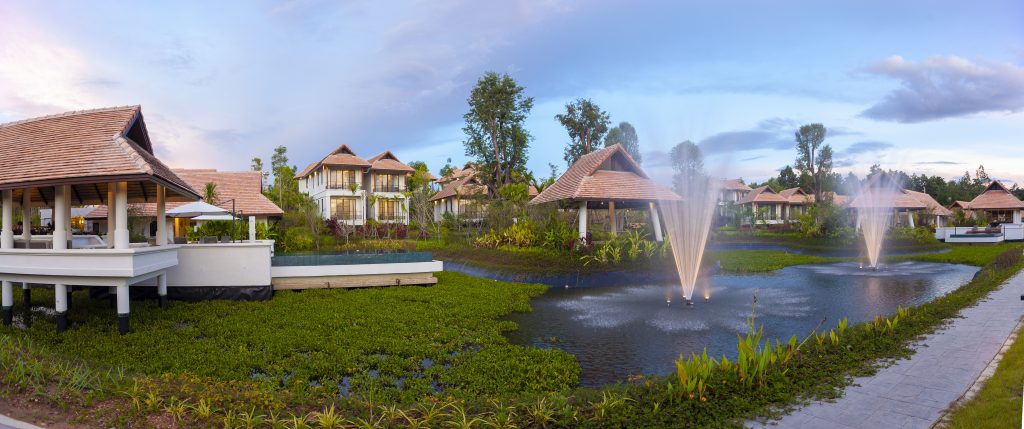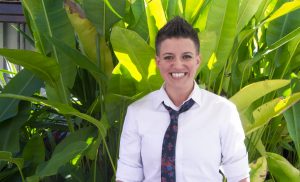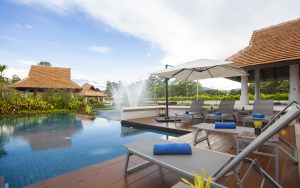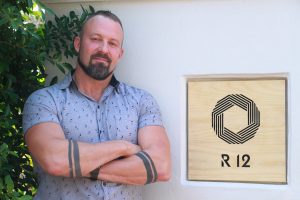
Sam Bennett talks to R12’s Stu Fenton and Casey Lucarelli about addiction in the queer community and the meaning of Pride.

Casey Lucarelli, primary therapist
Why is addiction such a problem for the queer community? I ask Connecticut-born Casey Lucarelli, primary therapist at R12, the rehab facility in Northern Thailand specifically for LGBT+ people. “The community as a whole experiences a lot of internalised homophobia, shame as well.” Now clean and sober herself, addicts, she says, want to numb the pain of such feelings. As a queer person, I’ve often drank and taken drugs liking the idea that I’m quashing the wimpy stereotype. Might that also factor in queer people’s drug and alcohol dependency? “Yeah, or a lot of addiction stems from trauma and bullying.”
“Everyone has their own flavour of addiction and recovery,” says Stu Fenton, the Chiang Mai facility’s clinical lead and head counsellor. He grew up on a farm in South East Australia, before finishing school and moving to Melbourne. As a young gay man he was “living and partying in moderate ways”, travelling the world and becoming exposed to certain drugs, and then experimenting in his mid-20s with ecstasy and speed on returning to the Australian capital. “Then I got into a love-addicted relationship with a guy, I got rejected. I started to use crystal meth, GHB and ecstasy in way higher amounts to numb the grief. Eventually that became an addiction.”
He began using intravenously and participating in chemsex. He was studying for a BA, “a highly functional addict” unable to address issues surrounding his masculinity (“just like you said”), the relationship he had with his parents, his “deep-seated” anger and a lot more. “I went to treatment for ten months in 2003 and was quite aghast at how many issues I did have. Some of them were definitely related to LGBT things but a lot of them weren’t.”
When he got clean, the love addiction that caused him to take drugs remained; he entered another 12-step programme and worked with a therapist to combat it. His colleague has also had to address love addiction, after breaking up with the woman she was in a relationship with. “My head was telling me that I couldn’t live without that person.” The detox evoked the same emotions she’d experienced when coming off drugs – “I felt it in my body, everywhere. I was confused, ‘I’m sober, what’s going on with me, why am I feeling this way?’” After 16 years of sobriety, love addiction maintains a presence in Fenton’s life; it’s nothing like as bad as it once was, but he’s still careful who he falls for.

“I’ve worked in a range of rehabs in my life,” he says, “very rough, rustic rehabs and very luxurious ones like the one we’re in now.” R12’s en-suite bedrooms are described as ‘similar in standard to a stylish premium hotel’, with king-sized beds, air conditioning, fridges, flat screen televisions, and modern bathrooms with rain showers. While Stu was getting clean at the rougher end of the rehab spectrum, “the fact is that there are some people who will not go to those rehabs, they like a certain level of luxury. For those this is the drawcard, and they do get sober and their lives do change.”
Part of the Cabin Addiction Services Group, R12 uses “a modified therapeutic community model which says the clients need to cook, clean, fold their own clothes, do everything for themselves”. But most of the people there have been doing this for years anyway, I’m told. Further, “our programme has been developed very intensely.” The rules state that no client skips a session, “all centred on developing self-awareness, learning about relapse prevention and developing strategies for better lives”. A Monday-Friday schedule comprises exercise, psychotherapy and meditation. “Everything is compulsory. If they don’t go to a group for some reason they are held to account on that. We go from 8.30am, 7 if they’re doing yoga, and finish at 7-8 o’clock at night. If anyone thinks this is a downtime experience, they’ll be gravely mistaken. People work when they come here.”

Stu Fenton, clinical lead and head counsellor
I speak to the former high school teacher ahead of his trip to France, where he’ll present at the iCAAD Paris day-conference, “about what characteristics LGBT people have developed because of the adversity we’ve faced over time, that has made us more resilient, empathic, creative, intelligent, and better able to navigate the world; how LGBT people have adapted to things like bullying and HIV and developed to be more courageous.”
As Pride Season looms, he stresses the positivity of people going into treatment “to become stronger, conquer their demons, and go out and celebrate Pride in a way that a lot of people are celebrating Pride. We have a right to be out there enjoying our sexuality, our social lives, and marrying the people that we want to.”
To Casey, Pride is about “embracing your true authentic self and just being proud of who you are”. Chiang Mai Pride took place earlier this year, she tells me, for the first time in a decade. June this year also witnessed a Pride event at The Cabin rehab centre where R12 is situated.
Once possessing internalised homophobia and “full of self-loathing”, Stu is now “very happy to be a gay man. I’m not one of those people who says ‘if I had a choice I’d be heterosexual.’ I love being gay, and I think for me Pride is an opportunity to celebrate that, and also for the world to celebrate that there are massive changes coming about now.”

